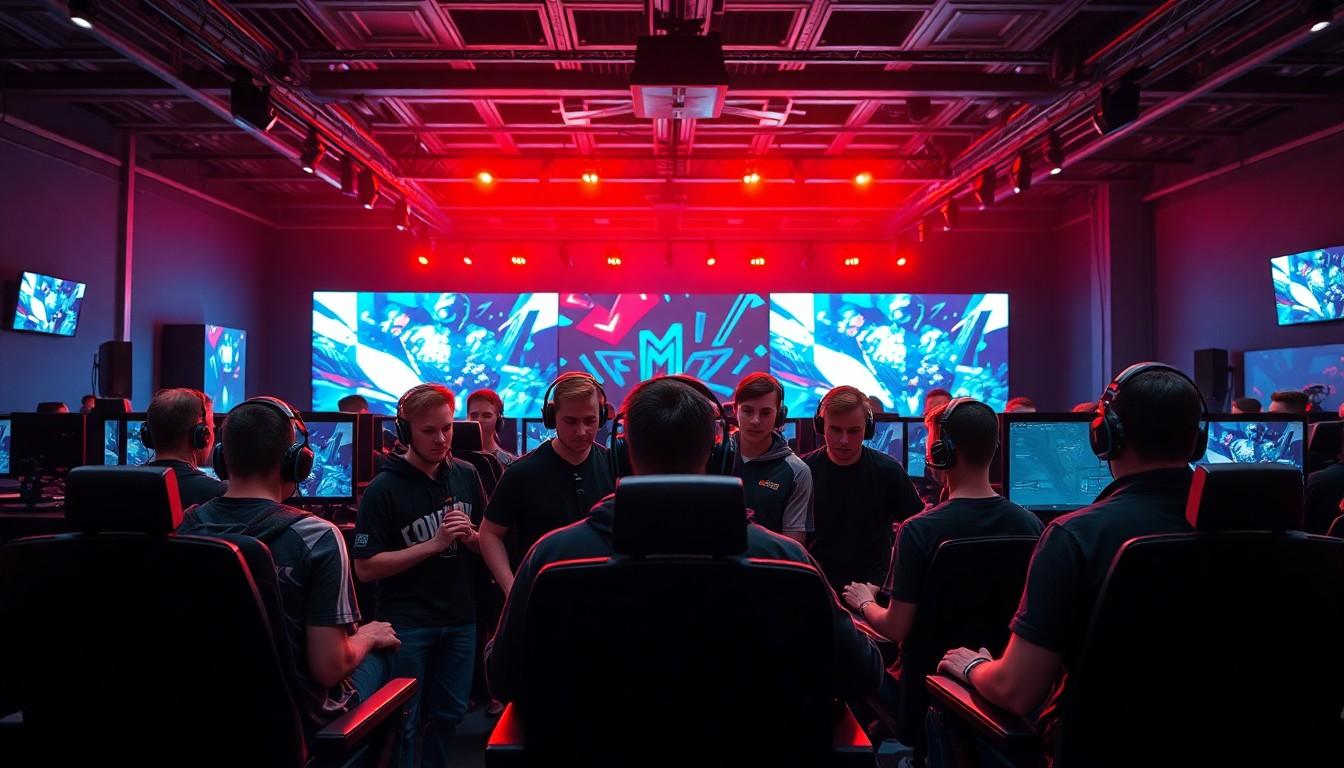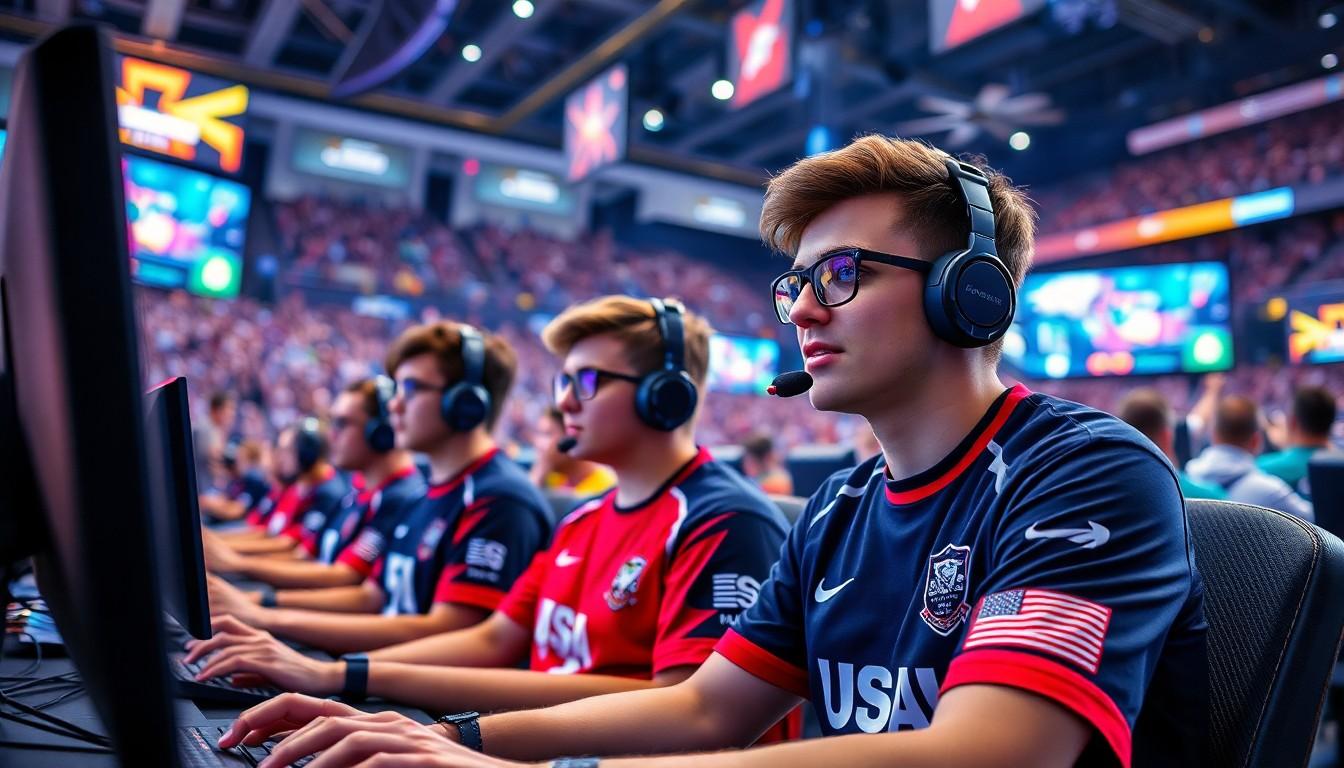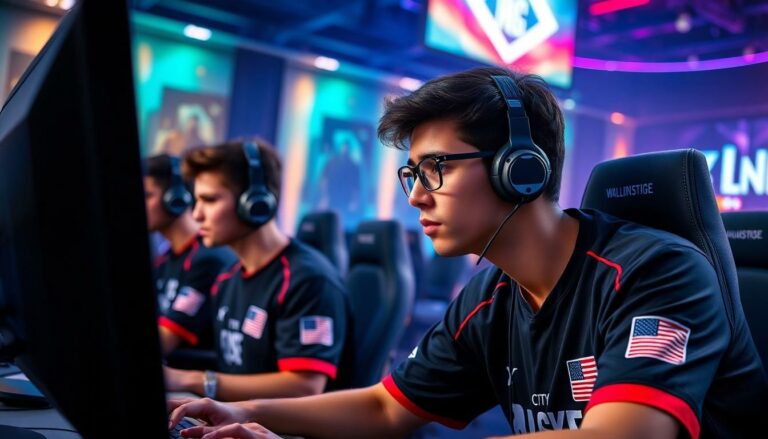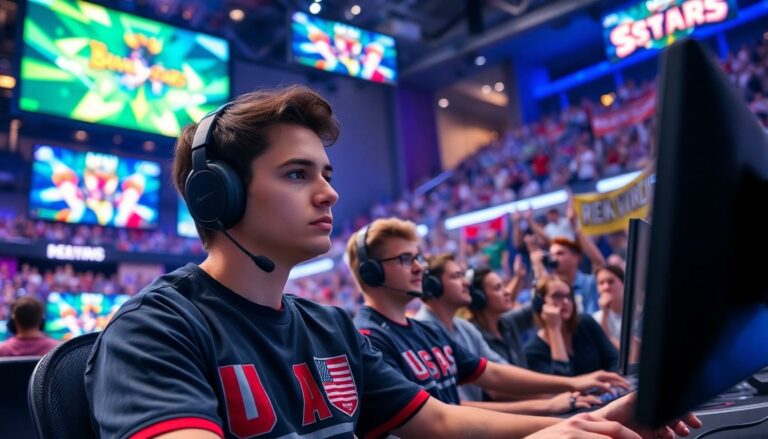In the electrifying world of esports, where pixels collide and champions rise, some teams have managed to capture the spotlight like a cat on a hot tin roof. These top esports teams don’t just play games; they redefine what it means to be a competitor. With their lightning-fast reflexes and strategies sharper than a chef’s knife, they’ve turned gaming into a spectator sport that rivals traditional athletics.
From heart-stopping tournaments to jaw-dropping plays, these teams have fans cheering louder than a rock concert. Whether they’re dominating the battlefield in League of Legends or outsmarting opponents in Dota 2, their journey is nothing short of epic. Buckle up as we dive into the thrilling universe of the top esports teams that are not just gaming but are rewriting the rulebook on competition.
Top Esports Teams
Esports teams represent the pinnacle of competitive gaming. Exceptional talent, rigorous training, and dedication define these organizations. Many top teams excel in multiple titles, demonstrating versatility and wide-ranging skills.
Notable organizations include Team Liquid, FaZe Clan, and T1. Team Liquid has achieved success in titles like Dota 2 and League of Legends, solidifying its reputation. FaZe Clan, known for its dominance in first-person shooters such as CS:GO and Call of Duty, attracts a diverse fan base. T1 made headlines with its incredible performance in League of Legends, earning international recognition.
Team structures often feature skilled players, coaches, and analysts. Coaches enhance strategies while analysts provide data-driven insights to improve performance. This collaborative approach ensures teams remain competitive in a rapidly evolving landscape.
Competitive success often leads to lucrative sponsorship deals and brand partnerships. Teams like G2 Esports and Evil Geniuses have secured significant investments, highlighting the industry’s growth potential. Moreover, franchises in leagues, such as the League of Legends Championship Series (LCS) and Overwatch League, contribute to the stability of these teams.
Fans play a crucial role in the esports ecosystem. Engaging with teams via social media and during tournaments creates a strong community. Merchandise sales further strengthen the connection between teams and their supporters.
Overall, the landscape of esports teams continues to flourish. Developing talent and embracing technological advancements contribute to their growth. The excitement surrounding tournaments showcases their impact on the gaming industry and attracts millions of viewers worldwide.
Criteria for Ranking Top Esports Teams

Top esports teams earn their rankings through various criteria that highlight their success and influence within the gaming community. Performance metrics and fan engagement serve as primary factors in this evaluation.
Performance Metrics
Success in competitive gaming relies heavily on performance metrics. Teams achieve high rankings based on tournament win rates, placement finishes, and in-game statistics. Metrics such as kills per game and average match duration provide insight into a team’s effectiveness during competitions. Additionally, consistency across different tournaments can elevate a team’s stature in the esports landscape. Performance in both regional leagues and international events demonstrates a team’s ability to adapt and compete at the highest level.
Fan Engagement
Fan engagement significantly impacts the rankings of esports teams. A strong follower base amplifies a team’s visibility and marketability. Social media interactions, such as likes, shares, and comments, reflect a team’s popularity and influence among fans. Merchandise sales also serve as a crucial indicator of fan support. Esports teams that actively involve their fans through community events and streaming content foster loyalty and strengthen their brand. Engaging with fans through platforms such as Twitch and YouTube enhances a team’s reputation, contributing to their overall success in the competitive arena.
Profiles of Top Esports Teams
This section highlights the achievements and impacts of leading esports teams.
Team A: Achievements and Impact
Team A has set the standard in competitive gaming, amassing numerous championships across various titles. Dominating tournaments like the International and League of Legends World Championship, their success showcases consistent high performance. With a roster of talented players, Team A combines strategy and skill, leading to impressive win rates. The organization’s influence extends beyond gaming, as it cultivates a dedicated fanbase through social media engagement and interactive content. Sponsorships from major brands have streamlines their growth, solidifying their position as a powerhouse in the esports industry. Their legacy inspires future generations of gamers and contributes to the evolving gaming landscape.
Team B: Achievements and Impact
Having secured multiple tournament victories, Team B stands out within the esports community. Their success in games like Counter-Strike and Dota 2 illustrates their adaptability and competitive edge. Team B’s players undergo rigorous training, honing skills that ensure peak performance during matches. A commitment to fan interaction drives their marketability, as they regularly host events and livestream sessions. Prominent sponsorships further enhance their visibility, supporting recruitment of top talent. Team B’s remarkable journey showcases the potential of teamwork and strategy in achieving excellence in esports.
Team C: Achievements and Impact
Team C has risen to prominence, making significant waves in the esports arena. Victories in high-profile competitions highlight their dedication and tactical prowess. Players within Team C exhibit not just individual talent but also seamless teamwork that leads to successful outcomes. Active involvement with fans boosts their community presence, fostering loyalty through merchandise and content creation. Strategic partnerships with leading brands bolster their financial stability, allowing for continuous improvement and investment in player development. Team C embodies a model of success, demonstrating the importance of resilience and innovation in the competitive gaming landscape.
The Future of Top Esports Teams
Emerging trends showcase the potential growth of esports teams in the coming years. Increased investment from traditional sports franchises fuels this expansion, as they recognize esports’ significant influence. Noteworthy partnerships between esports organizations and major brands further enhance visibility and create new revenue streams.
Talent development programs are essential in shaping future competitors. Many teams are establishing academies to nurture young players. These initiatives focus on skills training, mental fortitude, and strategic insights. Such programs help create a pipeline of skilled talent ready to join professional ranks.
Technological innovations play a crucial role in the evolution of esports. Enhanced streaming platforms revolutionize how fans engage with their favorite teams. Virtual reality experiences offer immersive viewing, creating a stronger connection between players and fans. Additionally, advancements in analytics improve team strategies and performance assessments.
Lastly, the fan experience will continue to evolve, driving engagement. Community events, online watch parties, and interactive formats will enhance loyalty among supporters. As teams capitalize on these opportunities, their influence and marketability will grow.
In essence, the future of top esports teams lies in strategic collaborations, talent development, technological innovations, and fan engagement, ensuring their position in the sports landscape remains strong.
Evolve at a Rapid Pace
The world of top esports teams is thriving and continues to evolve at a rapid pace. Their influence on the gaming landscape is undeniable as they attract millions of fans and secure lucrative sponsorships. With a focus on talent development and innovative strategies, these organizations are not only achieving competitive success but also shaping the future of esports.
As the industry grows, the commitment to enhancing fan engagement through community initiatives and technological advancements will play a crucial role in their ongoing success. The excitement surrounding tournaments and the dedication of these teams will undoubtedly inspire the next generation of gamers, ensuring that esports remains a prominent force in the entertainment world.







